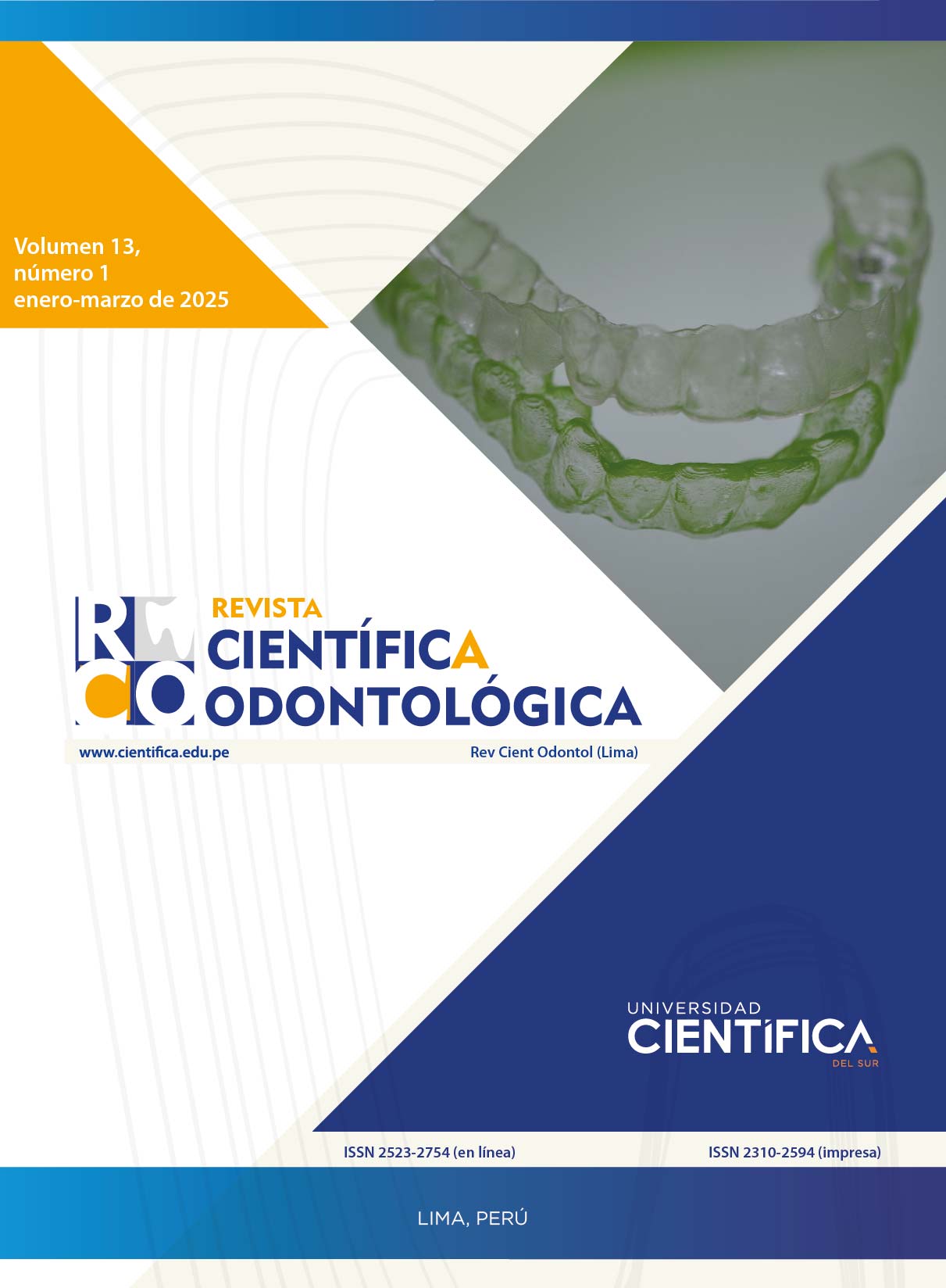FLEXURAL STRENGTH OF RESINOUS CEMENTS: IN VITRO EVALUATION
DOI:
https://doi.org/10.21142/2523-2754-1301-2025-228Keywords:
self-adhesive cements, flexural strength, mechanical propertiesAbstract
Objective: To evaluate the flexural strength of three dental resin cements. Materials and methods: Sixty bars measuring 25x2x2 mm were made of RelyX-U200, RelyxTM Universal and Duo-Link Universal cements. These bars were divided into 3 groups according to brand (n=20) and were kept in distilled water for 24 hours at 37ºC. The 3-point bending test was carried out, according to ISO 4049, in a universal testing machine at a speed of 0.5 mm/min until fracture. Statistical analysis was performed with the Python statistical package, using the one-way Anova test and Tukey's multiple comparisons test with a confidence level of 95%. Results: Duo-Link Universal cement obtained the highest average with respect to flexural strength (104.7±7.8 MPa). Statistically significant differences were found between the three groups (p< 0.001). These differences were present between RelyxTM Universal - Duo-Link Universal (p<.001) and Duo-Link Universal – RelyX U200 (p< .001) cements, while no statistically significant differences were found between RelyxTM Universal and RelyX U200 cements. Conclusion: Duo-Link Universal cement presents greater flexural strength compared to RelyX-U200 and RelyxTM Universal cements. The results indicate that Duo-Link Universal is ideal for restorations requiring high flexural strength, offering greater clinical durability, especially in areas of greater functional load and extensive restorations such as indirect prostheses or posts.
Downloads
Downloads
Published
Issue
Section
License

This work is licensed under a Creative Commons Attribution 4.0 International License.

Este obra está bajo una licencia de Creative Commons Reconocimiento 4.0 Internacional.












